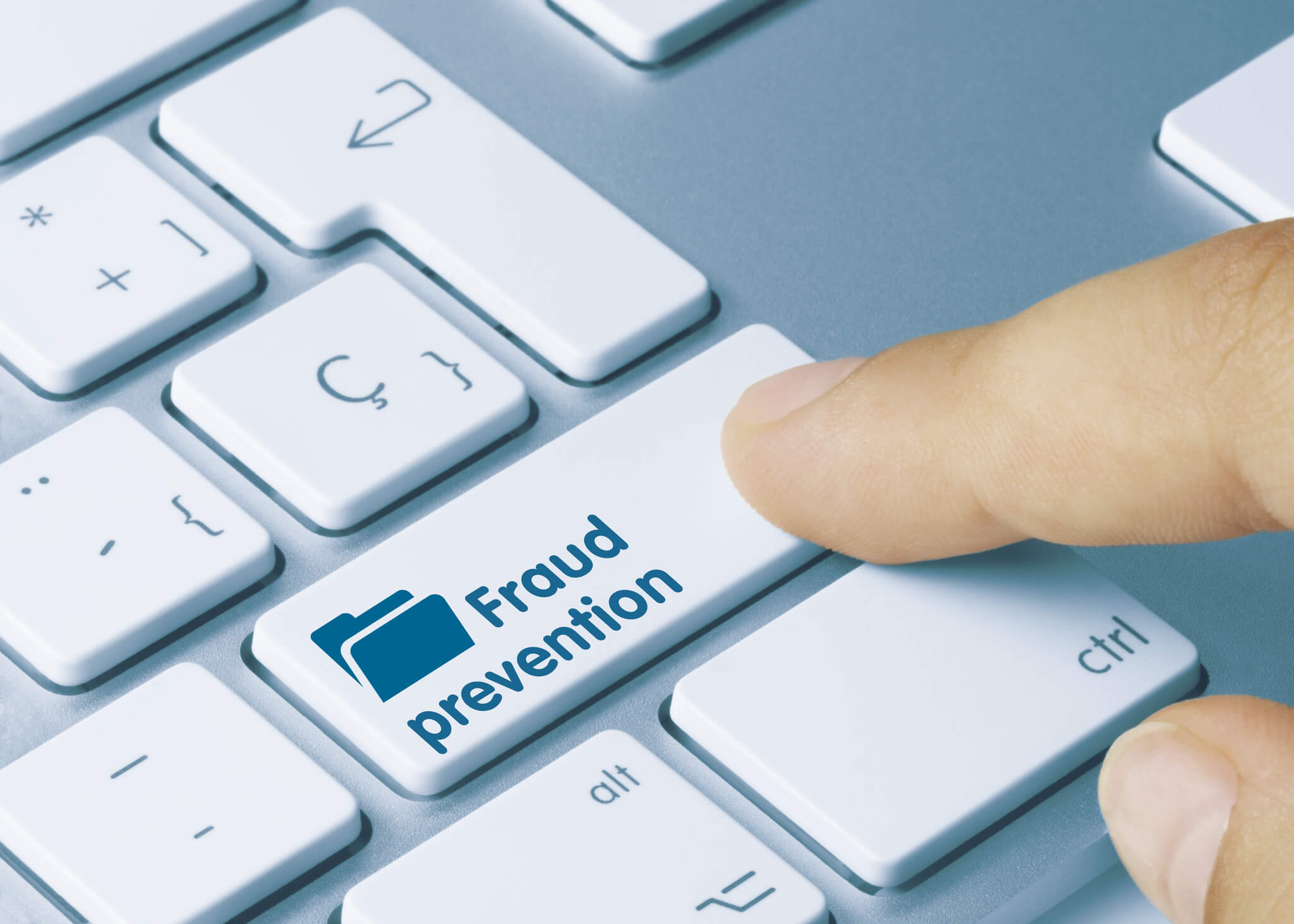
By alphacardprocess April 18, 2024
Payment fraud is a significant concern for businesses across industries, and the contracting industry is no exception. As a contractor, it is crucial to protect your business from payment fraud to maintain financial stability and preserve your reputation. In this article, we will explore the common types of payment fraud in the contracting industry and provide you with best practices to prevent such fraudulent activities. By implementing these strategies, you can ensure a secure and trustworthy environment for your clients and partners.
Types of Payment Fraud in the Contracting Industry
Payment fraud can take various forms, and it is essential to understand the risks associated with each type. By recognizing these risks, you can take proactive measures to prevent fraudulent activities. Let’s explore the common types of payment fraud in the contracting industry.
1. Invoice Fraud

Invoice fraud is a prevalent type of payment fraud that contractors often encounter. Fraudsters may create fake invoices or manipulate existing invoices to deceive businesses into making payments to unauthorized accounts. To protect your contracting business from invoice fraud, it is crucial to recognize the warning signs and implement preventive measures.
One of the warning signs of invoice fraud is a sudden change in payment instructions. If you receive an invoice with altered bank account details or a request to make payments to a different account, it should raise suspicion. Always verify any changes in payment instructions through a trusted source, such as a known contact at the vendor’s organization.
To prevent invoice fraud, establish a robust internal control system. Implement a two-step verification process for any changes in payment instructions. This can involve contacting the vendor directly using a verified phone number or email address to confirm the legitimacy of the request. Additionally, regularly review and reconcile invoices to identify any discrepancies or irregularities.
2. Phishing Scams

Phishing scams are another common type of payment fraud that contractors need to be aware of. Fraudsters often send deceptive emails or create fake websites to trick individuals into revealing sensitive information, such as login credentials or financial details. To protect your contracting business from phishing scams, it is essential to identify and avoid suspicious emails and websites.
One way to identify phishing emails is to carefully examine the sender’s email address. Fraudsters often use email addresses that mimic legitimate organizations but have slight variations or misspellings. Additionally, be cautious of emails that create a sense of urgency or require immediate action, such as updating account information or making urgent payments.
To avoid falling victim to phishing scams, educate your employees about the warning signs and best practices for email security. Train them to be skeptical of unsolicited emails and to avoid clicking on suspicious links or downloading attachments from unknown sources. Implement email filtering systems that can detect and block phishing emails before they reach your employees’ inboxes.
3. Check Fraud
Check fraud is a significant concern for businesses that still rely on paper checks for payments. Fraudsters may alter or counterfeit checks, leading to financial losses for contracting businesses. To protect your business from check fraud, it is crucial to implement secure check handling procedures.
One of the best practices for preventing check fraud is to use high-security checks with built-in security features, such as watermarks, holograms, or heat-sensitive ink. These features make it difficult for fraudsters to alter or counterfeit checks. Additionally, store your check stock in a secure location and limit access to authorized personnel only.
Implement a thorough verification process for all incoming checks. Train your employees to carefully examine checks for any signs of tampering or alterations. Encourage them to compare the signature on the check with the authorized signatory’s known signature. Consider implementing positive pay services offered by banks, which match the details of each check presented for payment with a list of authorized checks provided by your business.
4. Credit Card Fraud
Credit card fraud poses a significant risk to contracting businesses that accept credit card payments. Fraudsters may use stolen credit card information to make unauthorized transactions, leading to financial losses and potential damage to your business’s reputation. To ensure secure credit card transactions and protect customer data, it is crucial to implement robust security measures.
One of the most effective ways to protect your business from credit card fraud is to comply with Payment Card Industry Data Security Standard (PCI DSS) requirements. PCI DSS provides a set of security standards that businesses must follow to protect cardholder data. Implement encryption and tokenization technologies to secure sensitive cardholder information during transmission and storage.
Ensure that your payment processing systems are Payment Card Industry (PCI) compliant. Use secure payment gateways that encrypt cardholder data during online transactions. Regularly update your systems and software to patch any vulnerabilities that could be exploited by fraudsters. Train your employees on how to handle credit card information securely and never store cardholder data unless absolutely necessary.
5. Identity Theft

Identity theft is a growing concern for businesses and individuals alike. Fraudsters may steal personal or business information to commit various fraudulent activities, including financial fraud. To safeguard your contracting business from identity theft, it is crucial to implement measures to protect personal and business information.
One of the best practices for preventing identity theft is to limit access to sensitive information. Only provide access to personal and financial data to authorized employees who require it for their job responsibilities. Implement strong password policies and encourage employees to use unique and complex passwords for their accounts.
Regularly monitor your business’s credit reports to identify any suspicious activities or unauthorized accounts opened in your name. Consider using identity theft protection services that can help detect and mitigate potential risks. Train your employees on how to identify and report potential identity theft incidents, such as unauthorized access to systems or suspicious account activities.
Best Practices for Preventing Payment Fraud in Your Contracting Business
Now that we have explored the common types of payment fraud in the contracting industry, let’s discuss the best practices for preventing such fraudulent activities. By implementing these strategies, you can significantly reduce the risk of falling victim to payment fraud.
1. Strengthening Internal Controls
Establishing strong internal controls is crucial for preventing payment fraud in your contracting business. Implement checks and balances to ensure that no single individual has complete control over financial transactions. This can involve segregating duties, such as separating the roles of initiating payments, approving payments, and reconciling accounts.
Regularly review and update your internal control procedures to adapt to changing risks and business needs. Conduct periodic audits to identify any weaknesses or vulnerabilities in your control systems. Consider hiring external auditors to perform independent assessments of your internal controls.
2. Educating Employees
Educating your employees about fraud awareness and prevention is essential for protecting your contracting business from payment fraud. Train your staff on the common types of payment fraud and the warning signs to look out for. Encourage them to report any suspicious activities or incidents promptly.
Provide regular training sessions on cybersecurity best practices, such as how to identify phishing emails, create strong passwords, and securely handle sensitive information. Keep your employees informed about the latest fraud trends and techniques used by fraudsters. Consider conducting simulated phishing exercises to test your employees’ awareness and response to phishing attempts.
3. Implementing Secure Payment Systems
Implementing secure payment systems is crucial for preventing payment fraud in your contracting business. Utilize encryption and tokenization technologies to protect sensitive payment data during transmission and storage. Encryption ensures that data is unreadable to unauthorized individuals, while tokenization replaces sensitive data with unique tokens that have no value to fraudsters.
Choose payment processors and gateways that comply with industry security standards, such as PCI DSS. Regularly update your payment systems and software to patch any vulnerabilities. Monitor your payment systems for any suspicious activities or unauthorized access attempts.
4. Verifying Vendor and Customer Identities
Verifying the identities of your vendors and customers is crucial for preventing payment fraud. Conduct due diligence before entering into any business relationships. Verify the legitimacy of vendors by checking their business licenses, certifications, and reputation. Use trusted sources, such as government databases or industry associations, to validate vendor information.
For new customers, implement a robust onboarding process that includes verifying their identities and conducting credit checks. Establish clear payment terms and procedures to minimize the risk of fraudulent activities. Regularly review and update your vendor and customer information to ensure accuracy and detect any potential red flags.
5. Monitoring Financial Transactions
Regularly monitoring your financial transactions is essential for detecting and preventing payment fraud. Implement a system for reviewing and reconciling accounts on a regular basis. Assign dedicated personnel to perform these tasks and ensure that they have the necessary expertise and resources.
Review bank statements, invoices, and payment records to identify any discrepancies or irregularities. Investigate any unexplained or unauthorized transactions promptly. Implement real-time transaction monitoring systems that can detect and alert you to any suspicious activities, such as unusual payment amounts or patterns.
Frequently Asked Questions
Q.1: What should I do if I suspect payment fraud in my contracting business?
If you suspect payment fraud in your contracting business, it is crucial to act promptly. Gather all relevant evidence, such as invoices, bank statements, and communication records. Contact your bank or payment processor to report the suspected fraud and seek their guidance on the next steps. Consider involving law enforcement agencies, such as the police or the Federal Trade Commission (FTC), depending on the severity of the fraud.
Q.2: How can I protect my business from phishing scams?
To protect your business from phishing scams, educate your employees about the warning signs and best practices for email security. Train them to be skeptical of unsolicited emails and to avoid clicking on suspicious links or downloading attachments from unknown sources. Implement email filtering systems that can detect and block phishing emails before they reach your employees’ inboxes.
Q.3: Are there any warning signs that indicate potential invoice fraud?
Yes, there are several warning signs that indicate potential invoice fraud. These include sudden changes in payment instructions, such as altered bank account details or requests to make payments to a different account. Be cautious of invoices that create a sense of urgency or require immediate action. Regularly review and reconcile invoices to identify any discrepancies or irregularities.
Q.4: What measures can I take to prevent check fraud?
To prevent check fraud, use high-security checks with built-in security features, such as watermarks, holograms, or heat-sensitive ink. Store your check stock in a secure location and limit access to authorized personnel only. Implement a thorough verification process for all incoming checks and consider using positive pay services offered by banks.
Q.5: How can I ensure the security of credit card transactions in my business?
To ensure the security of credit card transactions in your business, comply with Payment Card Industry Data Security Standard (PCI DSS) requirements. Implement encryption and tokenization technologies to secure sensitive cardholder information during transmission and storage. Use secure payment gateways that encrypt cardholder data during online transactions. Regularly update your systems and software to patch any vulnerabilities.
Conclusion
In conclusion, protecting your contracting business from payment fraud is crucial for maintaining financial stability and preserving your reputation. By understanding the common types of payment fraud, implementing best practices, and staying vigilant, you can significantly reduce the risk of falling victim to fraudulent activities. Remember to educate your employees, establish secure payment systems, verify identities, and regularly monitor financial transactions.